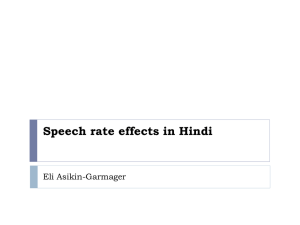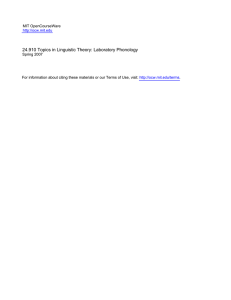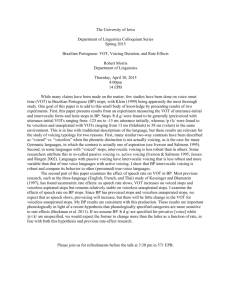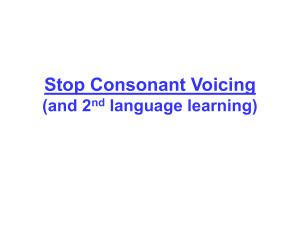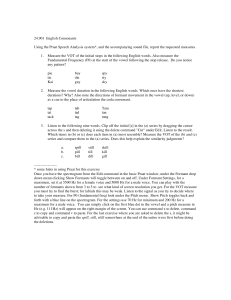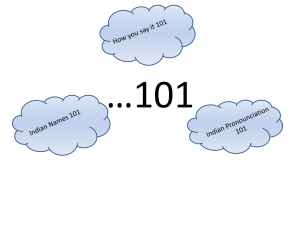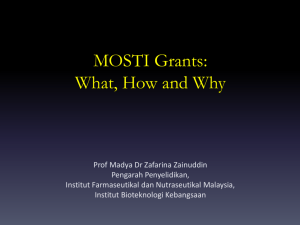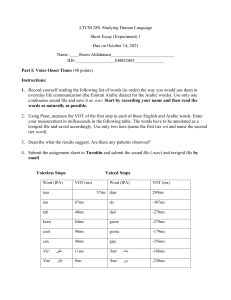d. Aspiration Voiced stops (in English) are never aspirated.
advertisement
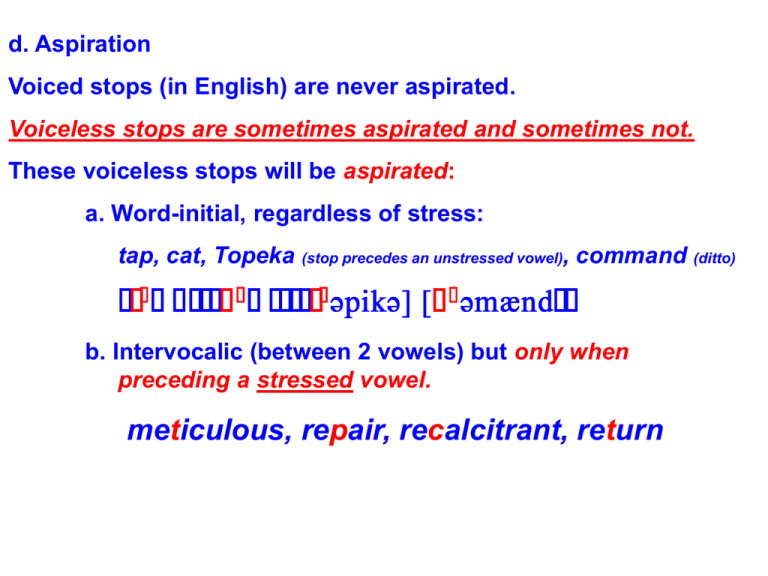
d. Aspiration Voiced stops (in English) are never aspirated. Voiceless stops are sometimes aspirated and sometimes not. These voiceless stops will be aspirated: a. Word-initial, regardless of stress: tap, cat, Topeka (stop precedes an unstressed vowel), command (ditto) [thQp] [khQt] [th kh ] b. Intervocalic (between 2 vowels) but only when preceding a stressed vowel. meticulous, repair, recalcitrant, return These voiceless stops will be unaspirated: a. Following /s/ stop, skate, stick, stare, spike b. Intervocalic, preceding an unstressed vowel napping, camper, sicken, supper, thirsty (Note: Sometimes these are unaspirated, sometimes they are lightly aspirated.) See Table 5-2 (p. 96) of MacKay for a nice summary with examples. Voice Onset Time (VOT) [phA] VOT ~85 ms [bA] VOT ~0 ms voicing onset release voicing onset and release ~ simultaneous VOT = Interval between articulatory release and onset of voicing. Voice Onset Time (VOT) [phAt] [spAt] VOT ~10 ms VOT ~85 ms voicing onset release Very short delay between release and voicing onset (~10 ms) [spAt] (unaspirated [p]) With [s] edited out pack [phQk] (aspirated [p]) /p/ precedes stressed vowel (aspirated) capping [khQpIN] (lightly aspirated [p]) /p/ precedes unstressed vowel (unaspirated or lightly aspirated)
